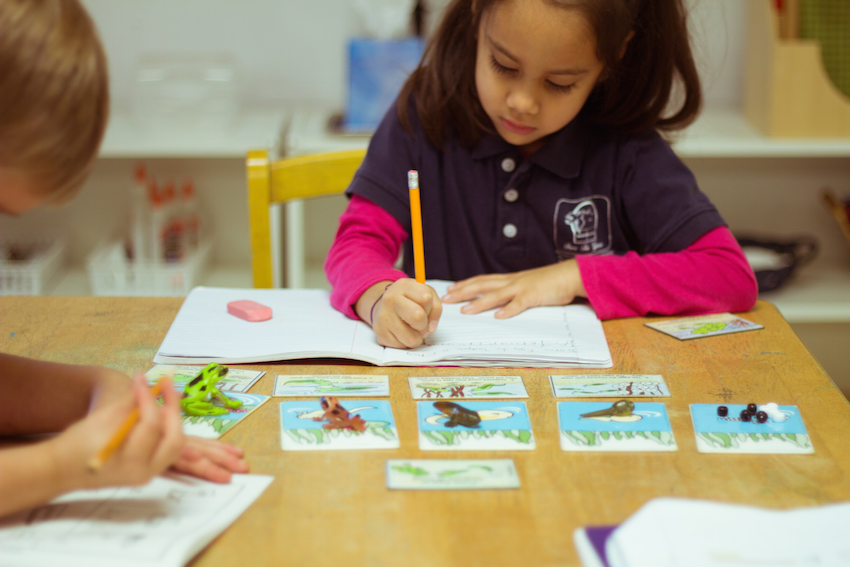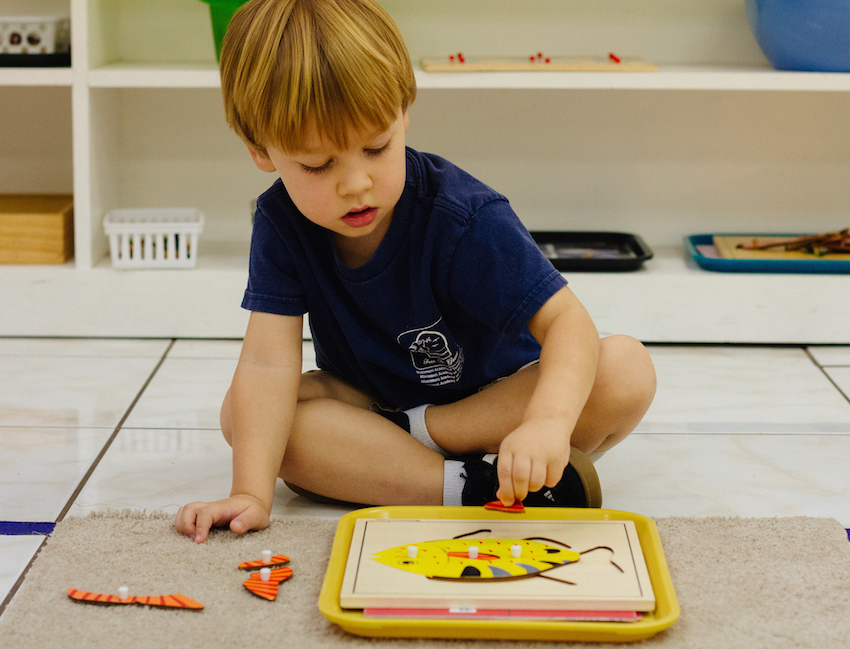“A child, more than anyone else, is a spontaneous observer of nature.” ~Maria Montessori
In Science, the children’s natural curiosity is stimulated through discovery projects and experiments, helping the children to draw their own conclusions. The plant and animal kingdoms are studied as well as botany, weather, magnets, energy, and machines.

In keeping with the Montessori philosophy in general, children should not always be taught specific facts or concepts for their own sake. We must be careful in science to pick those areas of learning where a child can observe a phenomenon and relate it to others. For example, relating plant growth from nutrients in the soil to animal growth from plant eating, and human growth from consuming both plants and animals.
Science education set upon this basis then provides the child with the opportunity for:
- Observing phenomenon
- Recording observations in simple fashion
- Drawing conclusions
Science study in the Montessori classroom provides an easy introduction to the world of logical thinking, which should be the primary aim of all education.

Science Sequence
- Zoology: Classifications, Body Parts and Functions, Life Cycles, Habitats
- Human Biology: Body Parts, Internal Organs, Systems; Functions of All
- Botany: Classifications, Plant Parts and Functions, Life Cycles, Habitats
- Earth Science: Earth Layers, Weather, Ecosystems/Biomes
- Physical Science: Water Cycle, Physical States, Basic Chemistry, Science Tools
- Mechanics and Technology: Machinery, Tools, Computers